Financial Health: Importance of Financial Health
When people are faced with mounting debt like credit card bills and student loans, their poor financial health makes their minds race with anxiety. Such anxiety in our financial lives can produce sleepless nights and physical and mental health problems. It’s not just about the dollars and cents; debt creeps into every facet of life, affecting our relationships, sleep patterns, physical and mental well-being and overall happiness. The shadows of financial distress loom large over many people, intertwining their financial health with their mental health.
In February 2022 I wrote the Brandon’s Blog “WHAT PERCENTAGE OF ILLNESSES ARE DIRECTLY OR INDIRECTLY CAUSED BY FINANCIAL STRESS? FINANCIAL STRESS IS THE MOST COMMON OF ALL TRIGGERS“. In that article, which is as popular today as it was in 2022, I wrote about how money, health, relationships, and work are deeply intertwined; stress in any one of them can exacerbate issues in others.
In this Brandon’s Blog, I describe a real-life case of how debt and financial health extend beyond mere numbers – its effects on mental health are profound and pervasive. Understanding this connection is crucial for those facing financial struggles to seek help and break the stigma around discussing such issues.
Key Components of Financial Health
Financial health refers to an individual’s or organization’s ability to manage financial resources effectively, make informed financial decisions, and achieve Individuals and organizations can achieve good financial health, stability, and success by focusing on these key componentsfinancial decisions, and achieve their financial goals. The key components of financial health can be categorized into several areas:
Income
- Stable and sufficient income to cover expenses
- Diversified income streams (e.g., multiple jobs, investments, or rental properties)
Tracking Expenses
- Managed expenses that do not exceed income
- Prioritized expenses (e.g., essential expenses like rent/mortgage, utilities, and food)
- Reduced debt and unnecessary expenses
Automating Savings
- Emergency fund to cover 3-6 months of living expenses
- Retirement savings (e.g., 401(k), IRA, or pension)
- Other savings goals (e.g., down payment on a house, education expenses)
Managing Debt
- Managed debt levels (e.g., credit cards, loans, and mortgages)
- High-interest debt prioritized for repayment
- Debt-to-income ratio below 36%
Credit
- Good credit score (e.g., 700+ FICO)
- Low credit utilization ratio (e.g., below 30%)
- No recent credit inquiries or negative marks
Investments
- Diversified investment portfolio (e.g., stocks, bonds, real estate)
- Regular contributions to investments
- Long-term investment strategy
Insurance
- Adequate insurance coverage (e.g., health, disability, life, and property)
- Regular reviews and updates of insurance policies
Financial Planning and Budgeting
- Clear financial goals and priorities
- Regular budgeting and financial reviews
- Professional financial planning and advice (if needed)
Cash Flow
- Positive cash flow (i.e., income exceeds expenses)
- Regular cash flow management and forecasting
Tax Planning
- Effective tax planning and strategy
- Regular tax planning and preparation
- Compliance with tax laws and regulations
Individuals and organizations can achieve good financial health by focusing on these key components. Individuals and organizations can achieve good financial health, stability, and success by focusing on these key components.
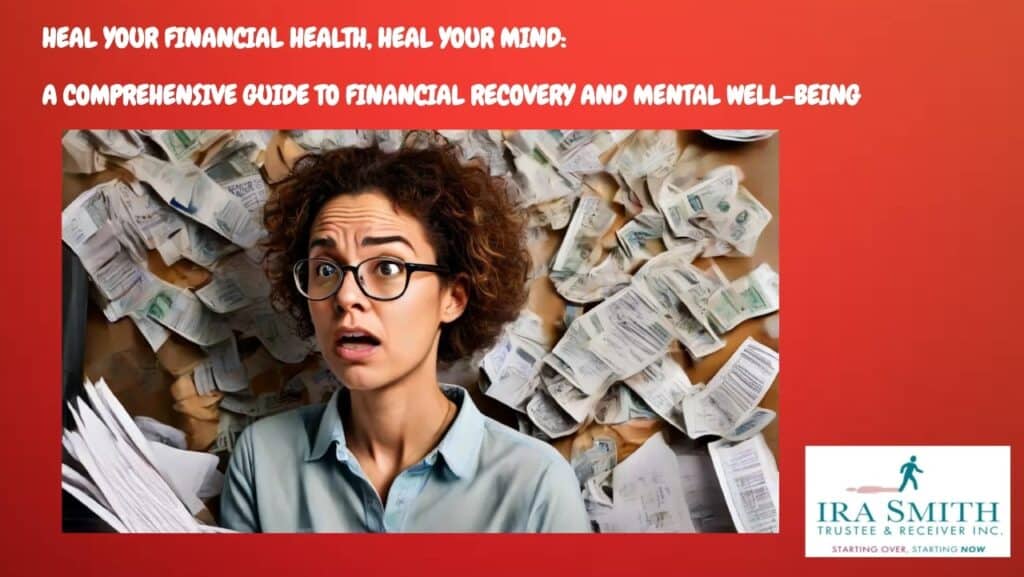
Assessing Financial Health
Measuring Net Worth
Measuring your net worth involves calculating the value of your assets minus the value of your liabilities. First, you need to make a detailed list of all of your assets and all of your liabilities. Next, you need to calculate the value of all of your assets and get the most recent balances for all of your liabilities. Then subtract the total value of liabilities from the total value of assets:
Net Worth = Assets – Liabilities
A negative number shows poor financial health. A positive number is good, but then you need to look at all of the components, especially the liabilities, to see if you could make it even better.
Lifestyle Inflation Management
Lifestyle Inflation Management (LIM) refers to the process of managing your lifestyle expenses to ensure that they do not exceed your income or financial means. It involves making conscious decisions about how to allocate your scarce resources to maintain a sustainable and fulfilling lifestyle while avoiding the pitfalls of lifestyle inflation.
LIM is particularly important for individuals who experience a significant increase in income, such as those who receive a promotion, inheritance, or windfall. Without proper management, this increased income can lead to lifestyle inflation, where expenses rise to match the new income level, leaving little to no room for savings, debt repayment, or long-term financial goals.
Effective LIM involves:
- Tracking expenses: Keeping a detailed record of income and expenses to identify areas where costs can be reduced or optimized.
- Setting short- and long-term goals: Establishing clear goals for savings, debt repayment, and investments to ensure that financial resources are allocated towards achieving these objectives.
- Prioritizing needs over wants: Distinguishing between essential expenses (needs) and discretionary expenses (wants) to ensure that necessary expenses are covered before indulging in discretionary spending.
- Implementing cost-cutting measures: Identifying areas where costs can be reduced, such as negotiating better deals on insurance, cutting back on subscription services, or finding more affordable alternatives for regular expenses.
- Investing wisely: Allocating a portion of the increased income towards investment products, such as retirement accounts, emergency funds, or other long-term savings vehicles.
- Avoiding lifestyle creep: Resisting the temptation to inflate one’s lifestyle by increasing spending on luxuries, travel, or other discretionary items.
- Building an emergency fund: Maintaining a cushion of savings to cover unexpected expenses, ensuring that financial stability is not compromised by unexpected events.
By implementing LIM strategies, individuals can:
- Maintain financial stability and security
- Achieve long-term financial goals
- Build wealth and increase financial independence
- Reduce stress and anxiety related to financial uncertainty
- Enjoy a more fulfilling and sustainable lifestyle
In summary, Lifestyle Inflation Management is a critical component of personal finance that helps individuals manage their expenses, prioritize financial goals, and maintain a sustainable lifestyle, even in the face of increased income.
Needs vs. Wants
The age-old distinction between needs and wants! Here are some tips to help individuals differentiate between the two and make more intentional financial decisions for better financial health:
Needs:
- Essential expenses: Housing, food, clothing, healthcare, education, and transportation are all necessary expenses that are essential for survival and well-being.
- Necessities: Utilities, insurance, and minimum payments on debts are also considered needs.
- Prioritize: When faced with limited resources, prioritize needs over wants.
Wants:
- Discretionary spending: Entertainment, hobbies, travel, and luxury items are all considered wants.
- Non-essential expenses: Upgrades, gadgets, and impulse purchases are also wants.
- Delay or defer: Consider delaying or deferring wants to ensure that needs are met first.
Tips for distinguishing between needs and wants:
- Ask yourself: “Do I really need this, or do I just want it?”
- Consider the consequences: Will not having this item or experience have a significant impact on your life?
- Prioritize: Make a list of your needs and wants, and prioritize the needs first.
- Set boundaries: Establish boundaries around your spending to ensure that you’re not overspending on wants.
- Practice delayed gratification: Delaying purchases or experiences can help you determine if they’re truly necessary or just a want.
- Automate: Automate your savings and investments to ensure that you’re meeting your needs and wants responsibly.
- Review and adjust: Regularly review your spending and adjust your priorities as needed.
Additional tips for managing wants:
- Set a “want” budget: Allocate a specific amount for discretionary spending each month.
- Use the 50/30/20 rule: Allocate 50% of your income towards needs, 30% towards discretionary spending, and 20% towards saving and debt repayment.
- Consider alternatives: Instead of buying something, consider alternative options, such as borrowing from a library or using a free trial.
- Practice mindfulness: Be mindful of your spending habits and avoid impulse purchases.
- Seek support: Share your financial goals with a trusted friend or family member and ask them to hold you accountable.
By following these tips, individuals can better distinguish between their needs and wants, make more intentional financial decisions, and achieve their long-term financial goals.
Financial Health and The Heavy Weight of Debt: A Personal Narrative
Introducing one of our clients we will call Steve
Meet Steve, which is not his real name. He is a 28-year-old living in Toronto, Ontario. Steve’s story is one that many can relate to. He faces a daily battle with debt that often feels like an uphill climb. His struggles are not just with his financial health; they echo into his mental health.
The Psychological Impact of Debt
For many, debt is more than just numbers on a page. It’s a stressor that impacts our daily lives. This is a troubling reality. There is a strong link between debt, financial health and mental health issues. When we think about it, how can we focus on what matters when our minds are tangled in worries about finances? Here are some basic facts:
- 46% of Canadians carry non-mortgage debt.
- Financial health stress from debt affects nearly half of them.
Anxiety and insomnia become unwelcome companions. Steve described his anxiety as “horrible.” He had trouble sleeping due to relentless thoughts about bills and payments. It’s a tough cycle. When we can’t sleep, our ability to handle stress diminishes. How do we break free from this cycle?
The Emotional Toll
Steve’s story isn’t unique. Many individuals share similar experiences in their financial lives. According to various studies, over 50% struggle to sleep, and 44% deal with changes in eating habits due to financial stress. This emotional weight can result in feelings of isolation. Imagine sitting in a room full of friends, yet feeling utterly alone because of your financial situation.
Steve spoke candidly about the toll his debt has taken on his relationships. “There are more irresponsible people than there are responsible people,” he noted, reflecting on the judgments often faced by those burdened by debt. The stigma surrounding financial difficulties keeps many silent.
Finding a Way Forward
As I reflect on Steve’s narrative, I realize that stories like his can resonate deeply with others. They shed light on an often-hidden aspect of our lives—financial distress. It’s a reminder that tackling these issues requires not just financial solutions, but emotional understanding as well.
Perhaps the first step toward recovery is opening up about these struggles. Just like Steve told his story to us, those suffering from mental health challenges need to start sharing their burdens.

Financial Health: The Scope of the Problem: Shocking Statistics
Debt is a heavy burden for many Canadians. According to a recent 2023 Ipsos poll, a staggering 46% of Canadians carry some form of non-mortgage debt. Around half (48%) of those carrying non-mortgage-related debts admit that their financial health is worsening as trying to pay off their debts is stressful. Those numbers alone is eye-opening. But what types of debt are most common? We often hear about credit card debt, personal loans, and even student loans. These financial obligations can create significant financial health stress.
What Does the Data Say?
We can’t ignore the connections between debt, financial health and mental health. A remarkable 50% of people surveyed report difficulty sleeping due to their financial situations. Can you imagine lying awake at night, worrying about bills? It’s no wonder so many are struggling. Additionally, 44% engage in unhealthy eating habits linked to financial stress. This suggests that debt permeates all aspects of life, including health.
Statistic | Percentage |
|---|---|
Canadians with non-mortgage debt | 46% |
Struggling with sleep due to debt | 50% |
Unhealthy eating habits related to financial stress | 44% |
The Demographics of Debt
When examining who is affected by debt, the numbers reveal insightful patterns. Young adults are usually more affected by job loss. Meanwhile, those over 45 tend to struggle with overspending and living beyond their means. It’s insightful to understand the causes of debt problems in different age groups, differ.
Linking Stress Levels
Stress from debt is a common experience. Could it be connected to mental health issues? Steve said:
Debt and mental health are closely linked.
This statement shines a light on the harsh truth. The emotional toll can be severe.
Interestingly, not everyone experiences debt stress similarly. Hayley Hamilton, from the Centre for Addiction and Mental Health, emphasizes that stress can vary widely among individuals. Imagine two people with the same amount of debt yet feeling completely different sensations of panic or calm. That is because although they may have the same debt, their assets and cash flow differ. Those with few assets and poor cash flow have poor financial health, which leads to mental health issues.
This complexity adds another layer to the issue. As we’ve seen, statistics paint a stark picture of the reality many Canadians face. To truly understand the impact of debt, it’s essential to consider both the numbers and the narratives behind them.
Financial Health: The Dark Side of Debt Is Unhealthy Coping Mechanisms
Debt can weigh heavily on our shoulders. We often find ourselves searching for ways to cope with the constant stress it brings. Have you ever wondered how others navigate this storm? Many individuals cope with debt-related stress through a variety of unhealthy mechanisms. I’ll share some common behaviours, their impacts, and ways to seek healthier strategies.
Common Unhealthy Coping Mechanisms
- Overspending: When people feel overwhelmed, they might resort to shopping as a temporary escape. It’s like putting a Band-Aid on a deeper wound. The thrill of buying something new fades quickly, and the debt just keeps growing.
- Substance Use: Drugs and alcohol can provide fleeting relief from financial worries. But this can lead to a vicious cycle, where addiction adds new layers of stress.
- Gambling: For some, gambling becomes a way to “win back” lost money. The risk here is immense. The odds are often stacked against us, leading to more debt rather than less.
Impact on Mental Health
Living with too much debt leads to poor financial health which can severely impact mental health. How can anyone focus on daily life when anxiety looms over them like a dark cloud? A recent survey highlighted that over 50% of respondents had trouble sleeping due to their financial situation. This lack of rest can spiral into deeper issues.
Moreover, around 44% report changes in eating patterns because of debt stress. Some might turn to comfort food, while others might lose their appetite completely. The pressures of financial strain often lead to social isolation as well. When you feel ashamed about your situation, it’s easy to pull away from friends and loved ones.
Advice for Healthier Coping Strategies
Experts suggest we confront the root of our stress rather than running away from it. As Steve said to us:
Debt, financial health and mental health, they go hand in hand,”
Talking about our struggles is essential. It can break the silence and stigma attached to financial hardships. Whether it’s discussing options with a professional or opening up to trusted friends, seeking help is vital.
Let’s not forget the power of accountability. Working alongside others can help us manage our finances responsibly. Reminding ourselves that we’re not alone can ease the burden we feel.
Embrace Awareness
Understanding negative coping mechanisms is the first step to recovery. The road to good financial health is tough, but every step taken towards awareness can lead us closer to healing. After all, the less we ignore our problems, the more power we have to conquer them.

Financial Health and Breaking the Stigma: Communication and Support
Stigmas around financial struggles are pervasive and deeply damaging. They create hurdles that many people face when they encounter debt. Why should we feel ashamed of needing help? It’s crucial to remember that struggling with finances doesn’t define us. It’s just one aspect of life.
Exploring Stigma
Many individuals feel isolated because of their debt. The anxiety tied to financial worries can lead to sleepless nights and increased stress levels.
“It’s horrible. I struggle every single day.” – Steve
When many of us encounter financial difficulties, we often keep quiet. Why do we hesitate to share our challenges? Fear of judgment holds us back. However, discussing our experiences can help create support networks that provide comfort and understanding.
Importance of Open Conversations
Open conversations about debt can foster a sense of community. When we share our stories, we often discover that many others are facing similar situations. This connection can act as a lifeline. Here are a few key points to consider:
- Normalize discussions about debt: Talking openly reduces the shame often associated with financial struggles.
- Share coping strategies: Learning from others can empower us to handle our situations better.
- Encourage help-seeking: Remind one another that it’s okay to seek professional help.
Engaging Support Systems
Our support systems can play a significant role in our recovery. Friends, family, and professionals can offer insights and support. However, we need to reach out.
Many people fear judgment when discussing their troubles. By sharing our experiences, we help dismantle that stigma, paving the way for others to seek help. Community resources can also lighten the load. Connecting with professionals to manage debt can provide valuable guidance.
Financial Health, Debt and Mental Health: The Path Forward
Debt can feel like an anchor dragging you down into the depths of despair. The stress from these financial burdens is palpable and often leads to anxiety and insomnia.
Actionable Steps for Financial Struggles
So, what can we do about it? Taking proactive steps is key. Here are some simple yet effective actions:
- Talk to someone you trust. It’s essential to share your struggles with a family member or friend. You might find they offer understanding or helpful advice.
- Seek professional help. Don’t hesitate to reach out to a financial advisor or therapist. Guidance can illuminate a path to recovery.
- Be mindful of your financial choices. Making conscious decisions to improve your financial health can ward off future stress. Consider your spending habits carefully.
- Just say no to unnecessary debt. It’s often wiser to delay gratification than to dive into additional liabilities.
Reflecting on Your Financial Habits
We all need to reflect on our financial habits. Are we overspending? Can we live with less? Understanding our financial behaviour is vital.
Ultimately, addressing debt is not simply about crunching numbers; it’s about improving our financial health and overall quality of life. We must recognize the emotional toll debt can take on us. If you’re struggling, remember that reaching out for help is a courageous first step toward healing.
This comprehensive look at how debt influences mental health is a crucial reminder of their interconnectedness. Let’s face this with awareness and caution, aiming for a healthier financial future that can also boost our mental well-being. After all, it’s never too late to take control and change the narrative surrounding our finances.
Financial Health FAQ
1. How does debt impact mental health?
Debt is more than just numbers; it’s a significant stressor that can severely impact mental well-being. The constant worry about finances can lead to anxiety, insomnia, and even changes in eating habits. Many individuals experiencing debt-related stress report feeling overwhelmed and isolated, impacting their relationships and overall quality of life.
2. What are some unhealthy ways people cope with debt stress?
Unhealthy coping mechanisms for debt stress include:
- Overspending: Seeking temporary relief through shopping, leading to a cycle of increased debt.
- Substance Use: Turning to drugs or alcohol to numb the stress, potentially leading to addiction.
- Gambling: Trying to win back lost money, often resulting in further financial losses and deeper debt.
3. What are some healthy ways to cope with debt stress?
- Open Communication: Talk to trusted friends, family, or a therapist about your struggles. Sharing your experience can alleviate feelings of isolation and shame.
- Seek Professional Help: Consult a financial advisor to create a plan for managing your debt and regaining control of your finances.
- Build Support Networks: Connect with others who understand your situation. Support groups or online communities can offer valuable advice and encouragement.
4. Why is it important to break the stigma around financial struggles?
The stigma surrounding debt prevents many from seeking help. Open conversations about financial difficulties can:
- Normalize the experience: Realizing that others face similar challenges can reduce shame and encourage help-seeking.
- Facilitate sharing of coping strategies: Learning how others manage their debt can empower individuals to find solutions.
- Promote seeking help: Encouraging each other to reach out to professionals can lead to positive change.
5. What are some practical steps to address debt?
- Create a Budget: Track your income and expenses to identify areas where you can cut back and save.
- Prioritize Debts: Focus on paying off high-interest debts first to minimize the overall cost of borrowing.
- Negotiate with Creditors: Contact your lenders to explore options for lower interest rates or payment plans.
- Explore Debt Consolidation: Combining multiple debts into one loan with a lower interest rate can simplify payments and save money.
- Seek Credit Counselling: A credit counsellor can guide budgeting, debt management, and financial planning.
6. How can I differentiate between needs and wants to manage spending?
- Needs: Essential expenses crucial for survival and well-being, such as housing, food, healthcare, and basic transportation.
- Wants: Discretionary expenses that enhance your lifestyle but are not essential, such as entertainment, hobbies, travel, and luxury items.
Prioritize needs over wants when making financial decisions. Delay or defer wants until you have met your essential needs and are on a stable financial footing.
7. What is Lifestyle Inflation Management, and why is it important?
Lifestyle Inflation Management (LIM) is the practice of controlling lifestyle expenses to prevent them from exceeding your income. It involves making mindful choices to ensure that increased income translates into savings, debt repayment, and long-term financial goals, rather than simply increased spending.
8. Where can I find additional resources and support?
There are various resources available to help individuals facing financial challenges:
- Financial Institutions: Banks and credit unions often offer financial education programs and counselling services.
- Government Agencies: Many countries have government agencies dedicated to providing financial guidance and support.
- Non-Profit Organizations: Numerous non-profit organizations specialize in debt management, credit counselling, and financial literacy.
- Online Resources: Websites and online communities offer information, tools, and support for managing finances and overcoming debt.
Financial Health Conclusion
Debt and financial health extend beyond mere numbers – its effects on mental health are profound and pervasive. Understanding this connection is crucial for those facing financial struggles to seek help and break the stigma around discussing such issues.
I hope you enjoyed this financial health Brandon’s Blog. Do you or your company have too much debt? Are you or your company in need of financial restructuring due to distressed real estate or other reasons? The financial restructuring process is complex. The Ira Smith Team understands how to do a complex restructuring. However, more importantly, we understand the needs of the entrepreneur or someone with too much personal debt.
You are worried because you are facing significant financial challenges. It is not your fault that you are in this situation. You have been only shown the old ways that do not work anymore. The Ira Smith Team uses new modern ways to get you out of your debt troubles while avoiding the bankruptcy process. We can get you debt relief freedom using processes that are a bankruptcy alternative.
The stress placed upon you is huge. We understand your pain points. We look at your entire situation and devise a strategy that is as unique as you and your problems; financial and emotional. The way we take the load off of your shoulders and devise a plan, we know that we can help you.
We know that people facing financial problems need a realistic lifeline. There is no “one solution fits all” approach with the Ira Smith Team.
That is why we can develop a restructuring process as unique as the financial problems and pain you are facing. If any of this sounds familiar to you and you are serious about finding a solution, contact the Ira Smith Trustee & Receiver Inc. team today.
Call us now for a free consultation. We will get you or your company back on the road to healthy stress-free operations and recover from the pain points in your life, Starting Over, Starting Now.
The information provided in this Brandon’s Blog is intended for educational purposes only. It is not intended to constitute legal, financial, or professional advice. Readers are encouraged to seek professional advice regarding their specific situations. The content of this Brandon’s Blog should not be relied upon as a substitute for professional guidance or consultation. The author, Ira Smith Trustee & Receiver Inc. as well as any contributors to this Brandon’s Blog, do not assume any liability for any loss or damage resulting from reliance on the information provided herein.
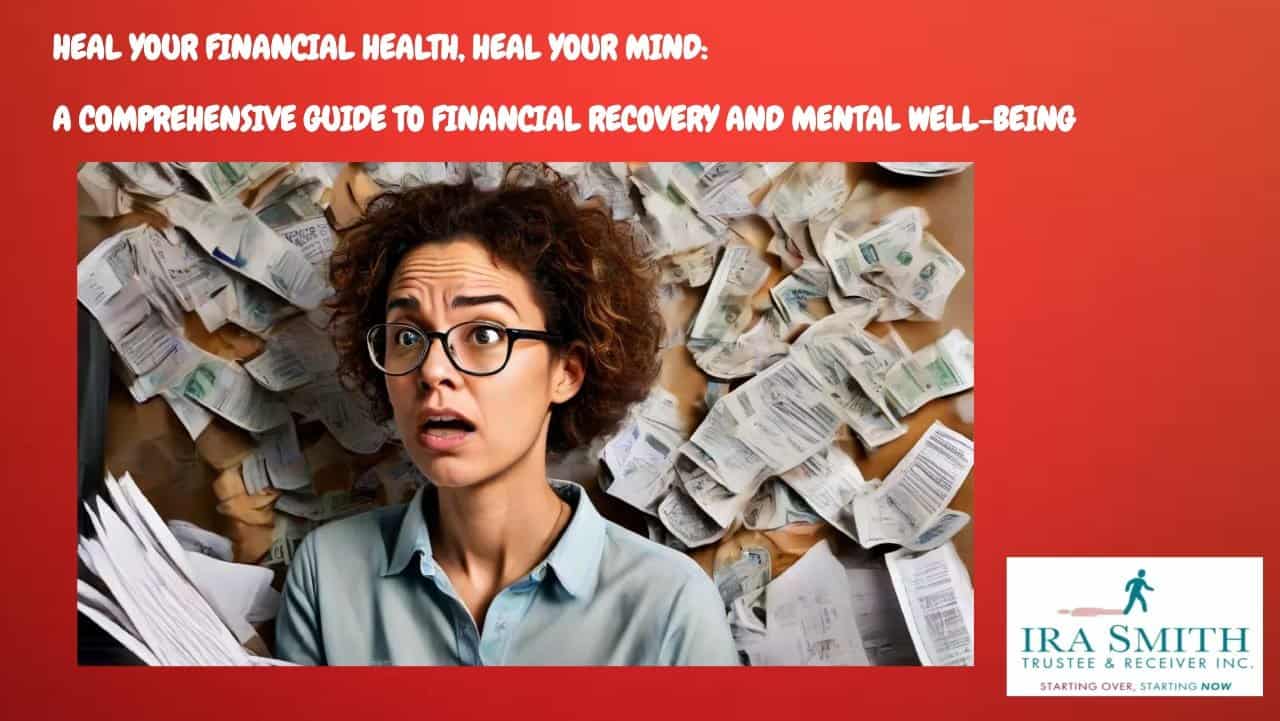


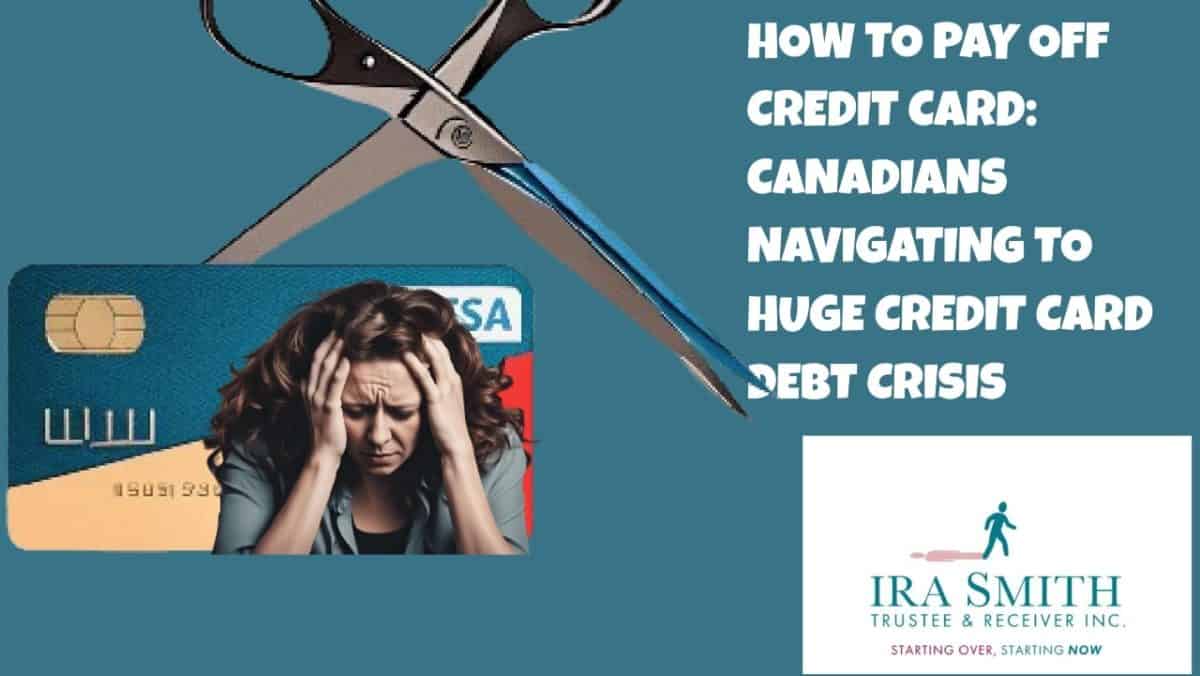
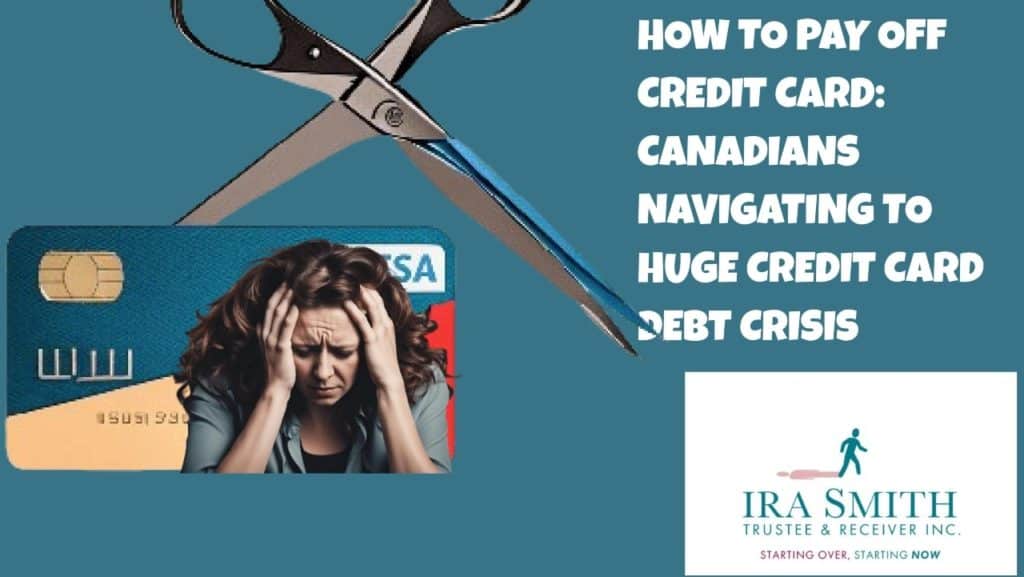
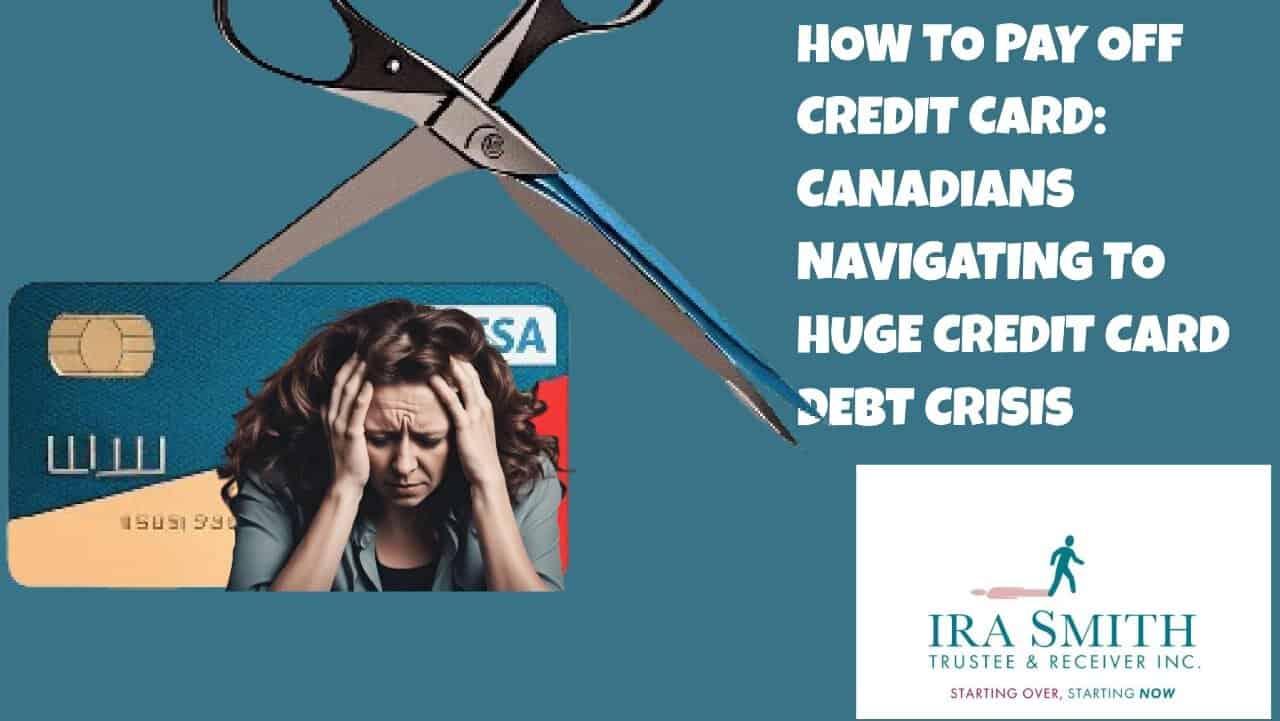
 We hope that you and your family are safe, healthy and secure during this
We hope that you and your family are safe, healthy and secure during this


